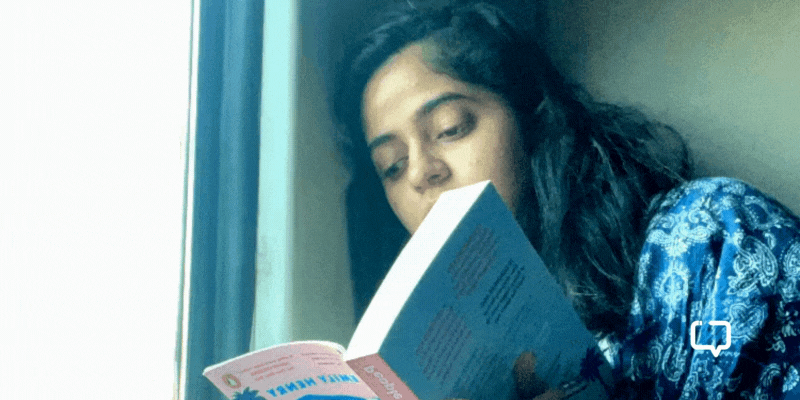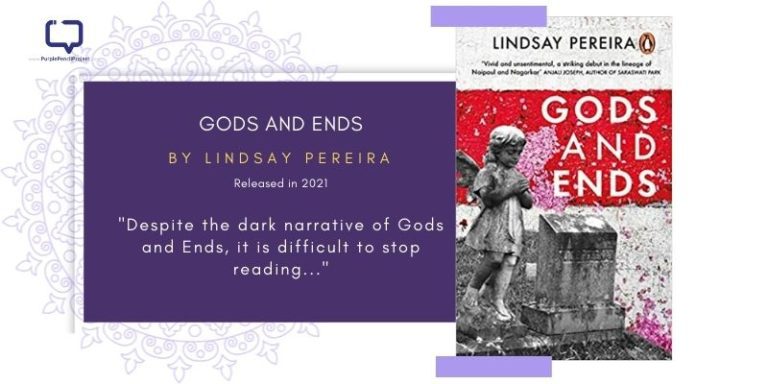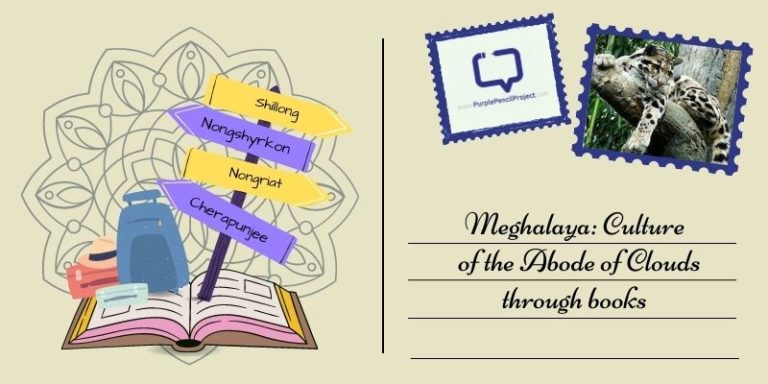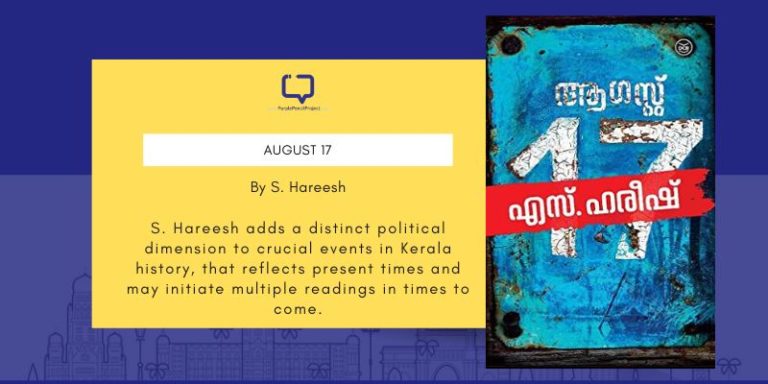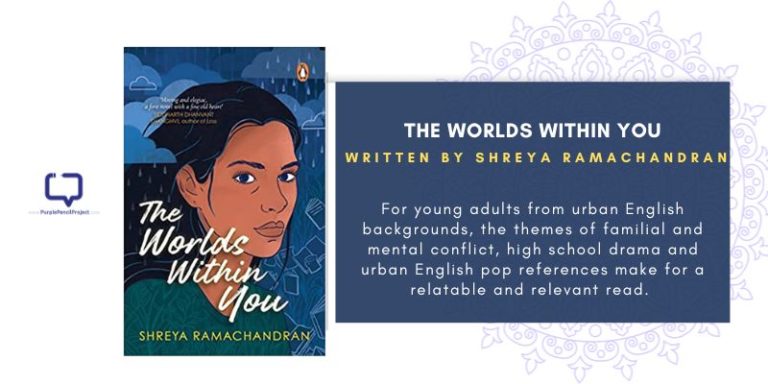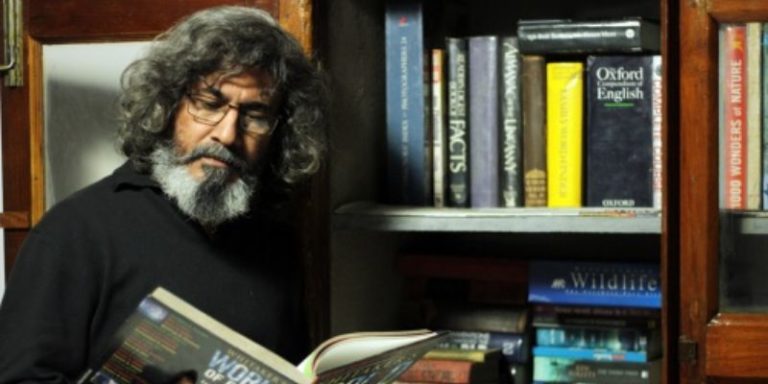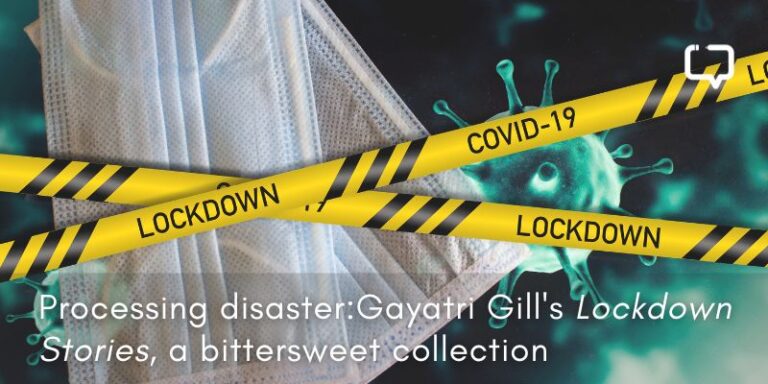Prakruti Maniar writes about the personal and societal benefits of reading and its impact on cognitive development, time management, and well-being amidst a plethora of modern digital distractions.
I cannot tell what drew me to reading or where I got my interest in reading from. Perhaps it was my grandfather, who had a fascinating library collection and a penchant for writing—both things I discovered years after he passed away. Perhaps it was my mother who would sit with my five-year-older-than-me brother for his school work when she was pregnant with me.
Perhaps it was because of my first book (or the one I remembered as my first), which I read during a time of illness when I was in primary school. It was 365 stories for 365 days. Up until then, I was strongly affiliated with colouring books, but that book changed something, and words became the better of my friends in this three-way friendship—defining me for a big part of my life.
The big change happened sometime in 2015, perhaps. My friends of the time enjoyed movies more than books, and I started to consume more of them. TV shows entered after that. Content jobs began, and then social media took over, with articles, numbers, and data proving the decline of reading and books, even as I was starting up a platform (Purple Pencil Project).

It’s a question I have pondered on for a while. Reading is counter-intuitive to many, many ways of our modern life:
1. It’s analogue and does not contain a multi-purpose interface. Even Amazon Kindles now function more like tablets than books.
2. It takes time, a thing we continuously seem to have less and less of.
3. The dopamine hit is gradual, and it competes with two of the most addictive technologies: video games and social media feeds.
4. It is expensive to produce and distribute while also being cheaper to plagiarize.
5. It’s essentially a solitary activity in a world that’s pushing us to be incredibly connected to each other, even while depriving us of the real deal—a solid offline community filled with warmth and support.
For my own plan for the future and, by extension, my business, I have thought to myself, ‘What are the challenges or biases that stop us from reading more?’, ‘Why read now in the world of video?’, and, if I want to, ‘How can I read more?’
One of the biggest problems of reading and literacy is that bad education policies and practices in India have formed a terrible association of books with exams. Because our schools did not bother to teach or empower us with critical thinking skills, books became just a tool to pass an exam and not to be enjoyed independently.
Consequently, as urban Indians, we did not develop the range of linguistic skills required for strong communication. English was a language of business and economic progress, and that remains.
But reading is still the ONLY way to develop a thought into a fleshed-out idea. You can give me information in a minute, but real news and discourse will need an hour and an hour’s worth of written material to expand on something and maintain continuity.
It allows you to deliberate and reflect, sharpening your mind to do the same in real life, only faster. It allows you to hold a thought and remember it, unlike mindless scrolling, where your brain fails to register any real information. It compresses wisdom, but does not need to simplify it.
The Skewed Perception of Time

The common defence anyone has is always, ‘But where’s the time?’ or ‘But there’s so much to watch?’
Time is not to blame; the habit is. Check your screen time for social media before giving that defence. Aside from keeping up with the lives of your friends, most social media scrolling is either ignoring or falling prey to the ads that will creep up every few minutes. It takes about the same time to read a newspaper as it does to take an ‘Instagram break’ (believe me, I have timed myself). But the newspaper, like a print in quicksand, leaves a mark. News you read on the digital is nothing but footsteps on the sand.
One of the biggest benefits of reading is that it slows time down, allows you to prolong a moment, and stacks prolonged moments on top of each other to stretch your time much longer than it is. All our audio-video content blurs time by increasing the amount of things we consume.
Recommended Reading: Essay: Translating My First Story by Sneha Pathak
Marking the passage of time as humans is an activity marked by our actions. When we were cavemen, we only needed night and day because we did little besides hunting and finding shelter. We needed seasons after agriculture came into the picture. We needed clocks when offices came into the picture.
Your activity will define whether you feel like you have more time, or less. A day out on even a half-day hike will feel far longer than one spent just mindlessly filling up your wishlist on an e-commerce site.
You have the same time. You just need to know what to do with it.
Benefits of Reading: The Beauty of Disconnecting and the Resource Value of Focus

It’s almost common knowledge today that disconnecting from social media enriches your life. The digital detox, as the COVID-19 pandemic taught us, was more required than we thought it.
A book allows you to have mini breaks all the time.
Recommended Reading: On Reading Novels
Because there are no hyperlinks like in articles, “You might like reading because you enjoyed this one,” you can develop more focus. Instead of switching between tabs and getting nothing done while wasting time, you can follow through, one page at a time.
As the world turns into a distracted bubble, focus will become a superpower. The ability to tune out the noise and have a total commitment to the task at hand is going to be a rarity more valuable than any skillset AI courses will promise you.
Pick up a book and see the magical benefits of reading: how it transforms your ability to listen, pay attention, and register things. How it improves your ability to communicate, reduces uninformed reactions, and brings patience and mental dexterity.
Overcoming the Reading Slump
“It’s been so long now, I wonder how to even start.”
Like working out and eating well, reading and writing are muscles that need to be trained and kept healthy. Over the last year, I had an impossible reading slump, the inability to read a book that was not tied to work. But I got out of it, and here are the things I learnt on how to, in the process:
1. Start With What You Know
Like an episode of F.R.I.E.N.D.S. or The Office is the perfect watch between two new shows, re-reading an old book is a good way to return to reading. For me, the go-to novels are Harry Potter and the Philosopher’s Stone, Pride and Prejudice, Premendra Mitra’s Short Stories, Manto’s stories, books by Roald Dahl, Lord of the Rings or The Hitchhiker’s Guide to the Galaxy, or a book by Salman Rushdie, it could be anything for you. The criteria are that they should have been part of your early years or reading, and you should remember the plot well enough not to be surprised by any twists.
This is a way to trick your brain. The book should be old enough that you know what’s happening, so your mind then begins to focus on the details and get hooked onto stuff like, was Mr. Darcy in the room when Mr. Bingley proposed? Or what was the name of the Big Friendly Giant, if he had any? The details pull you in when, otherwise, distraction might have stopped you from going further.
2. Keep a Book Around Always
Access is a huge factor. I am not shy about reading on my Kindle. It’s easier to carry around and at least allows me to read. I keep a book at my bedside table, one in my bag, and one at my work desk. It’s a reminder to me to pick it up every time I have a break instead of mindlessly looking at phone notifications all the time.
Recommended Reading: Where do words go when people stop speaking them?
3. Mix up the Reading Genres
I get bored of non-fiction sometimes. Mysteries are amazing to practice longer hours of reading. Some books just suit the mood you are in. Having two-three reads, depending on the circumstance, is a good idea. For instance, I keep familiar books for bedside reading (it has drastically improved my quality of sleep!). I keep a light mystery or drama read for my commute on my Kindle, probably the kind of book I might not have paid too much for. I dedicate some time during lunch for a non-fiction read so that I can feel equally productive during a work day.
But What if You Are New to Reading?

I get asked this question once a day. “Where do I begin to read?”
This mostly comes from people who have heard of the benefits of reading, especially in communication development, but either find it hard to start or do not know where to.
Unfortunately, there is no straight answer. But you can start by asking yourself three questions:
1. What is a subject you can spend hours researching or want to know more about? Do you want to create wealth? Is it fitness? Do you want to learn a language? Regardless of a book, what is your current goal?
2. What is my attention span? (Some people can watch movies immersively in one go. Others watch it in parts. Some people can listen to podcasts without distraction. Others only use it as background noise.) Your attention span will inform both the number of pages and the style of writing.
3. And most importantly, what is your emotional language? Yes, English is the universal functional language, but our brains are connected in fantastical ways with our mother languages. Often, learning something in the mother language first can help. If you don’t read it, you can start by listening to stories or reading translations/transliterations.
The answers to these questions will help you find your first book. And from then on, it’s a slow but guided process.
Recommended Reading: Ten novellas to kickstart that reading habit
Whenever it seems like an uphill task, remember that it took you 10-15 years to get a command over a language. If you are an engineer, it took you 4-6 years to finally start programming with confidence and fewer errors. Perhaps when you start working out, you would pick the lightest weights before moving on to heavier ones.
Reading is an easier muscle to build than most. It’s just about becoming friends with the words in front of you.
And that’s what we are here for.







